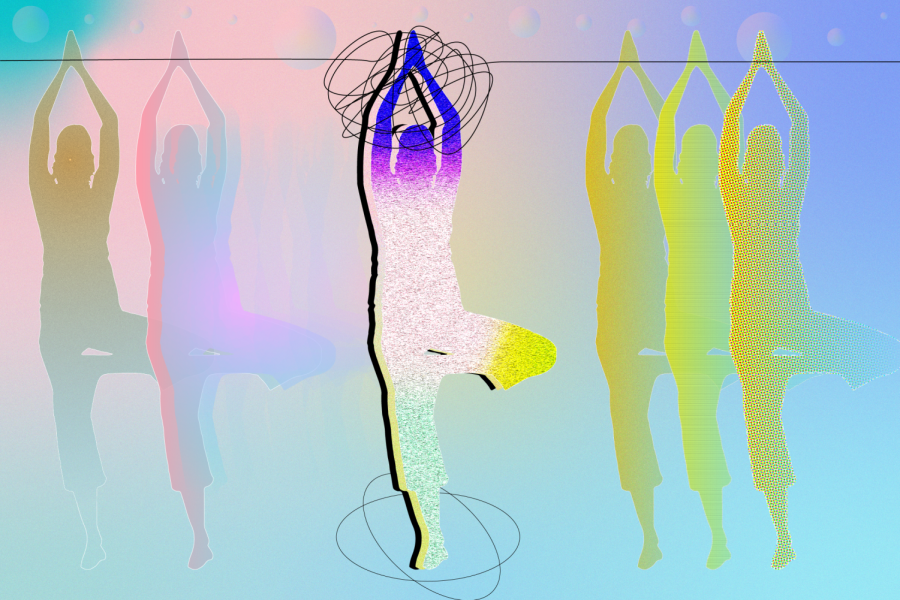Go touch grass
April 16, 2023
Flower children, tree-huggers, potheads — whatever you want to call them, the iconic hippies of 60s counterculture are known for their values of peace, love and respecting the Earth. Although we might look back at them and laugh, I think they were on to something.
College students especially struggle with getting caught up in anxieties of looming deadlines and exam dates, losing our grasp on the present. In effect, we forget to prioritize our own peace.
Mindfulness is a trained state of active, open attention to the present. Grounding is a specific technique that can remind us of our present experience on Earth by aligning our minds, bodies and surroundings. By practicing an intentional awareness of our thoughts, emotions and physical sensations, students can get off our phones and out of our heads.
Holistic healing has been central to Austin’s culture since the hippie movement of the 1960s, but it definitely didn’t start there. The pillars of what Americans refer to as “hippie” are based in a rebellion against Western norms and an acceptance of Buddhist, Hindu, and other Eastern belief systems. It is part of the fading — yet lingering — magic of our city.
“Even though Austin has changed so much, it’s still ‘Keep Austin Weird,’” said Maggie Wilhite, Student Wellness Coordinator for the College of Liberal Arts.. “It came from grassroots hippie culture — a vision that we could all be healthier and happier and more whole.”
Remnants of hippie culture still live on in Austin. I see it when I visit Barton Springs, where people practice yoga and meditation alongside the spring and swim peacefully in the somewhat freezing water. There’s even health-centered skinny-dipping down the road at Hippie Hollow.
“What grounding means to me is taking what’s in your head and understanding that your head is attached to your body, which is attached to the ground. If you can connect the top to the bottom, being the Earth or the ground, then you can find balance,” Wilhite said.
Understandably, some people might be hesitant to adopt grounding techniques. In our commercialized world, the idea of pursuing harmony with the Earth is often considered unconventional. Luckily, there’s many accessible ways to practice grounding. You can start with simple mental routines that take one minute or less, like the five senses method, which is known to calm anxiety and prevent dissociation.
Other examples, like earthing, seek to combat our disconnect from the physical Earth. Evidence suggests that habits like walking barefoot outdoors, where you come into direct contact with the ground, may be a simple, natural and yet profoundly effective way to combat stress.
“It’s like our souls are longing for that interaction with nature,” said Saniyah Qazi, a Plan II major. “Times when I get to pray outside in nature … that’s a completely different experience. It’s a different connection.”
This mindset isn’t just for local hippies — in fact, the principles of mindfulness and reverence of nature have been used to promote wellbeing around the world for centuries in many different ways. For some, that’s taking a peaceful walk without their phone. For others, it’s prayer.
“‘With every hardship comes ease’,” Qazi said, quoting the Quran. “It puts everything into perspective where I’m like ‘Maybe I didn’t get the best grade on this test,’ but I’m alive, and I have so many things to be grateful for.”
It takes stepping outside ourselves, and even outdoors, to prompt this kind of awareness and gratitude.
Approaching finals season, students are sure to experience anxieties surrounding exams, deadlines and GPA’s, and as the most stressed generation, it’s time for young adults to turn to this age-old secret to happiness. Through grounding, we can disconnect from stressors and reconnect with what, quite literally, brings us down to Earth.
Jackson is a Plan II and journalism first-year from Boerne, Texas.
















